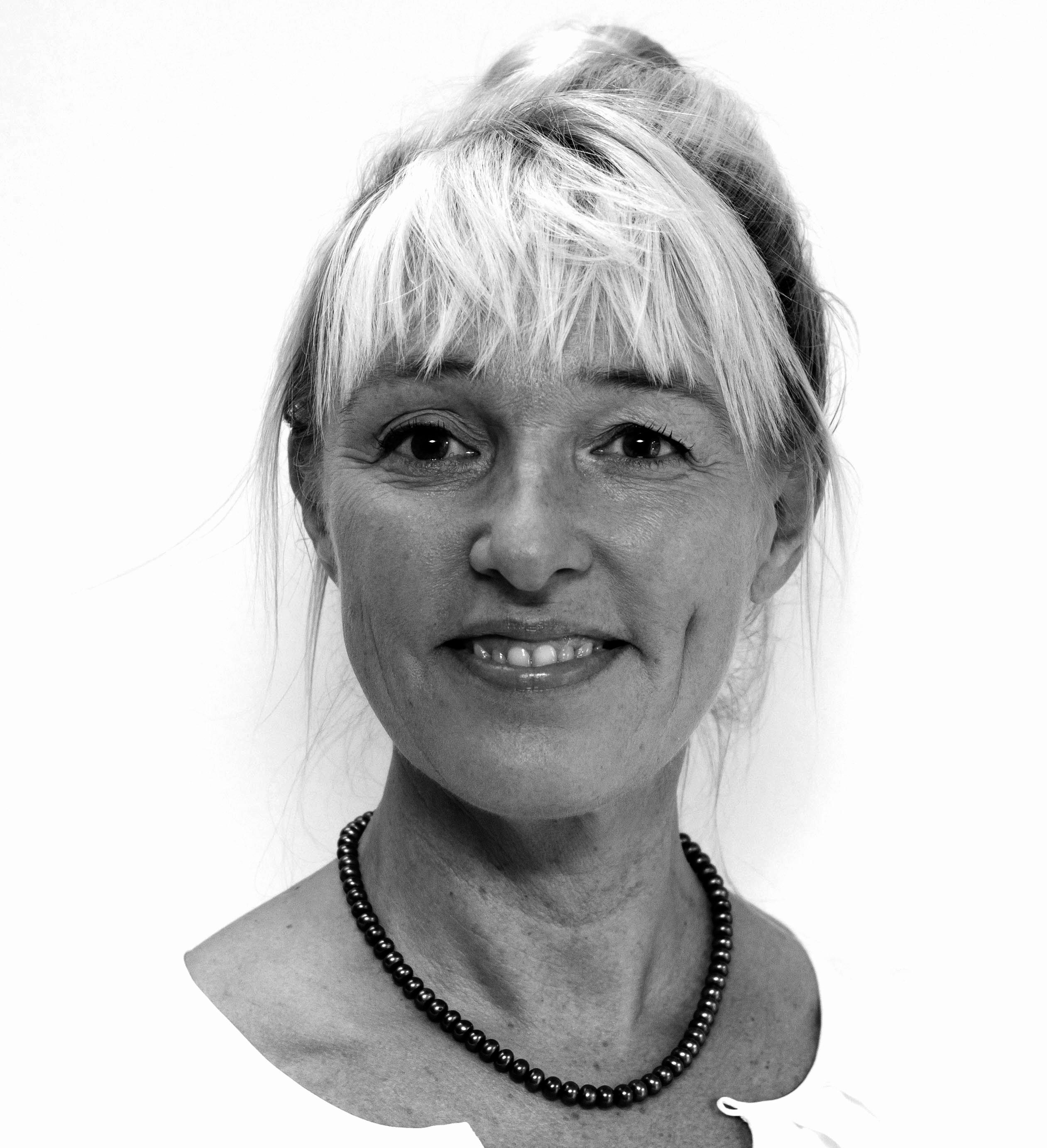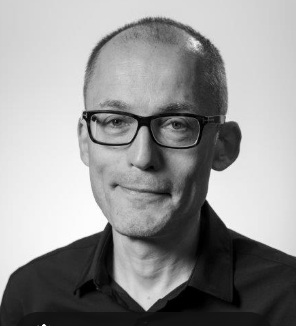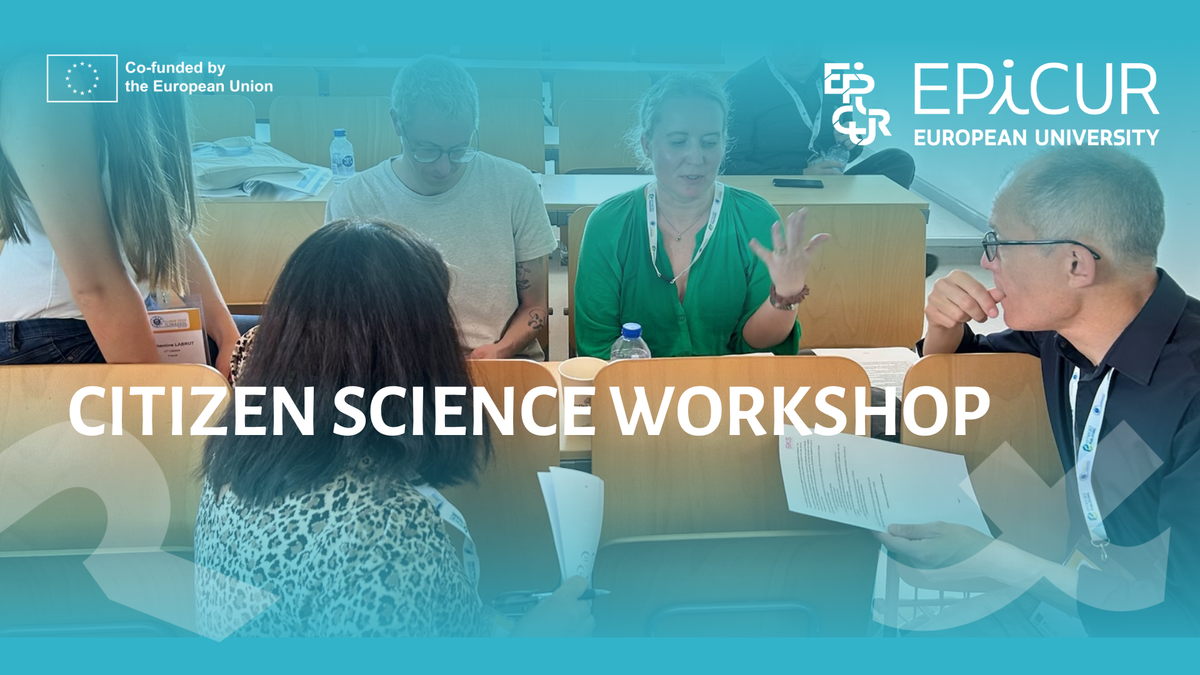Themenfelder sind unter anderem Reflexion über Wissenschaft und Technik, Bildung, Citizen Science oder innovationsbezogene Fragen innerhalb und außerhalb des Hochschulkontexts. Die Veranstaltungen richten sich an Personen, die sich beruflich oder privat für diese Themen interessieren.
Neue Termine werden hier veröffentlicht.
EPICUR Citizen Science-Angebote während der KIT Science Week | 17. Oktober 2025
Für Forschende, Mitarbeitende sowie Interessierte aus der Zivilgesellschaft sowie Politik und Verwaltung
Ort: TRIANGEL Transfer | Kultur | Raum, Kaiserstraße 93, Karlsruhe
Sprache: Englisch
Workshop: From Idea to Impact – incl. EU Funding Strategies!
17. Oktober 2025 | 9:00 – 12:30 Uhr
Citizen Science verbindet Disziplinen und schafft Brücken zwischen Forschung und Gesellschaft – mit dem Ziel, globale Herausforderungen gemeinsam zu bewältigen.
In diesem interaktiven Workshop lernen Sie von Citizen-Science-Expertinnen und -Experten:
- Josep Perelló (University of Barcelona)
- Anne Kathrine Overgaard & Thomas Kaarsted (University of Southern Denmark)
Was Sie erwartet:
- Praktische Einblicke in die Umsetzung von Citizen Science in Forschungsprojekten
- Strategien zur erfolgreichen Einbindung in EU-Förderanträge
- Moderierte Diskussionen zur Projektentwicklung mit dem CoAct-Toolkit
- Best Practices für sektorübergreifende Zusammenarbeit
Ob Sie ein neues Projekt starten oder ein bestehendes weiterentwickeln möchten – dieser Workshop vermittelt Ihnen das nötige Wissen, um Ihre Citizen-Science-Initiative wirkungsvoll und förderfähig zu gestalten.
Der einführende Teil des Workshops wird als Webinar mit interaktiven Fragerunden live gestreamt. Falls Sie nicht vor Ort teilnehmen können, besteht die Möglichkeit, online dabei zu sein.

Josep Perelló ist Professor an der Universität Barcelona und Forscher am University of Barcelona Institute of Complex Systems (UBICS). Er leitet OpenSystems-UB, eine Forschungsgruppe, die wissenschaftliche Projekte im urbanen Kontext durch Bürgerbeteiligung und künstlerische Praktiken entwickelt. Sein Fokus liegt auf Klimagerechtigkeit, Klimaschutz, Luftqualität und urbaner Hitze, wobei er häufig Bildungsgemeinschaften und besonders vulnerable Gruppen einbezieht. Er koordinierte das Projekt CoAct (Co-designing Citizen Social Science for Collective Action), das 2025 den Europäischen Preis für Citizen Science in der Kategorie „Digitale Gemeinschaften“ gewann. Derzeit leitet er das Arbeitspaket zur sozialen Inklusion im Projekt SENSE, das kunstintegrierte Wissenschaftsbildung durch einen sensorischen und partizipativen STEAM-Ansatz fördert.

Anne Kathrine Overgaard ist Leiterin für Forschungsunterstützung und Innovation an der Fakultät für Gesundheitswissenschaften der Universität Süddänemark (SDU). Gemeinsam mit Thomas Kaarsted gründete sie das SDU Citizen Science Knowledge Center und war an zahlreichen Projekten beteiligt, darunter mehrere EU-geförderte Vorhaben. Ihr Arbeitsschwerpunkt liegt auf der gesellschaftlichen Wirkung von Forschung, insbesondere im Bereich Medizintechnik.

Thomas Kaarsted ist stellvertretender Bibliotheksdirektor sowie Direktor des SDU Citizen Science Knowledge Center, das er gemeinsam mit Anne Kathrine Overgaard gegründet hat. Seit über zehn Jahren arbeitet er daran, die Kluft zwischen Wissenschaft und Öffentlichkeit im Bereich Citizen Science zu überbrücken und war an zahlreichen EU-Projekten beteiligt, die durch Horizon Europe, Erasmus und Interreg Dänemark-Deutschland gefördert wurden.
Beratungsangebot: Citizen Science in Practice – 1:1 Expert Consultations & Best Practices
17. Oktober 2025 | 13:30 – 15:30 Uhr
Sie planen ein Citizen-Science-Projekt oder benötigen Unterstützung bei der Antragstellung? In 20-minütigen Einzelgesprächen erhalten Sie direktes Feedback von unseren Expertinnen und Experten.
Im Anschluss: Besuch des MobiLab, einer der Infrastrukturen des KIT für Citizen Science – während der KIT Science Week steht das MobiLab direkt gegenüber dem Naturkundemuseum.
Hinweis: Die Beratung baut auf dem Workshop am Vormittag auf, kann aber auch unabhängig besucht werden.
Die Veranstaltungen werden organisiert von den EPICUR Hubs und der KIT Graduate School CuKnow des KIT-Zentrums Mensch und Technik.
Teilnahme vor Ort: Anmeldung
Teilnahme am Webinar: Anmeldung
Kontakt:
Kirsten Rosa – kirsten.rosa∂kit.edu
Hoai Truong – hoai.truong∂kit.edu


